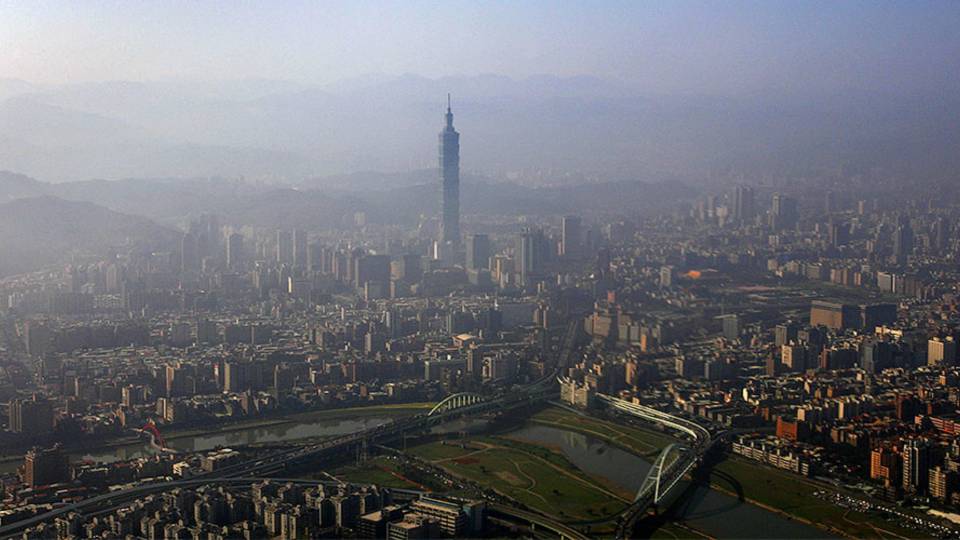Trump Does Taiwan
Did President-elect Donald Trump turn a 10-minute phone call with the president of Taiwan into a Hellfire missile, instantly vaporizing the US’ 'One China' policy? Of course not.
This is a riddle inside an enigma. Let’s start with a cool-headed interpretation, as published in a report by the National Academy of Development and Strategy at Beijing’s Renmin University, which for three years has been advising the Chinese leadership.
Yang Qijing, the author of the report, cuts to the chase: “The unspoken words behind ‘Make America Great Again!’ is that China’s economy, especially its manufacturing industry, is making the US not so great as before…So we should not question [the determination of the] Trump administration to mobilize any political, economic and military resources to protect and advance US economic interest, or even make it its first priority.”
In a nutshell, Taiwan will be used as a Trump bargaining chip to close some package deal with China.
Now for the hardline interpretation, as voiced by the Global Times, which in a popular, no-holds-barred way, is always allowed to formulate out loud what the Beijing leadership is discussing behind closed doors.
An editorial with shades of The Sopranos states, “Beijing will never drag out an ignoble existence by paying into a protection racket. The strength gap between China and the US for the moment is the narrowest in history. What reason do we have to accept a most unfair and humiliating deal from Trump?”
Is it hubris – as in the “narrowest strength gap in history”? Not really. The Global Times is suggesting a Sun Tzu maneuver; China “should dare to make surprise moves and create a new pattern over the relationship with the US - while you play your game, I play mine.”
So expect Chinese President Xi Jinping to play the game at a whole new level.
The meaning of ‘One China’
Last Sunday, on Fox News, Trump made the strategic mistake of laying all his cards on the table, stressing, “I fully understand the ‘one China policy,’ but I don’t know why we have to be bound by a ‘one China policy’ unless we make a deal with China having to do with other things, including trade.”
So Beijing has duly registered the message: Taiwan is now officially a bargaining chip.
Trump also said, “we’re being hurt very badly by China with devaluation; with taxing us heavy at the borders when we don’t tax them; with building a massive fortress in the middle of the South China Sea, which they shouldn’t be doing; and, frankly, with not helping us at all with North Korea.”
Trump may be slightly off on those three counts. Beijing does not want the yuan to devalue further; it is aiming at an appreciation. Conflicts in the South China Sea will eventually be solved within the ASEAN framework, as the Philippines and Malaysia, for instance, are already hinting. Nothing can be done about North Korea if there’s no real, formal end to the Korean War, still to be signed between Washington and Pyongyang.
Trump at least somewhat deflected his adversarial tone by nominating Xi Jinping's "old friend" Terry Branstad as the new US Ambassador to China.
Trump’s advisors, in parallel, should inform him what 'One China' means to Beijing. That’s the foundation stone of national unity – encompassing sovereignty and territorial integrity; in sum, the Holy Grail. Even though Washington has recognized 'One China' since 1979 – with Beijing as 'the sole legal government' of China – an exceedingly ambiguous position remains on the political status of Taiwan.
For Washington, Taiwan is not a state. What is it then? That remains “undetermined,” thus implying that Washington does not really admit that Taiwan is part of China. Washington maintains relations with a government – in Taipei – that is not officially recognized, under an “undetermined” status.
What Trump seems to be aiming at is to rock this - uneasy - boat. Well, the late, great Little Helmsman Deng Xiaoping made it very clear that the crowning achievement to erase China’s “century of humiliation," after the handover of Hong Kong and Macau in the late 1990s, would be the return of Taiwan, in a sort of “one country, three systems” arrangement, before 2040.
Watch the global supply chains
'Bargaining chip' Taiwan entered the geopolitical fray linked to Trump’s campaign promise to bring US jobs back, an extremely hard act to pull off. The US-based Economic Policy Institute estimates the US lost five million manufacturing jobs between 2000 and 2014. In a nutshell, that’s 'collateral damage' to agile supply chains performing under turbo-charged globalization.
A report by the Nikkei Asian Review has revealed how the Apple supply chain in Taiwan is worried Trump will insist on more iPhone components are made in the USA. That will inevitably mean more than double the cost. Not to mention the US lacks the necessary infrastructure – as in clusters of suppliers - and the necessary skilled workers to make it happen, as Apple CEO Tim Cook told 60 Minutes a year ago. The only way out: Trump ordering the US government to subsidize local companies.
The hard fact is that Trump cannot afford a trade war with China. His campaign promise to slap a 45 percent tariff on made in China products is just rhetorical. And even if that happened, Beijing would not see it as a disaster.
Xi Jinping’s drive – the complex tweaking of the Chinese export model - is focused on raising Chinese consumer spending levels, as in developing the huge internal market. China’s production costs are rising? Chinese factories are delocalizing all across Southeast Asia and further away to Africa? No problem; China is relentlessly moving up in the value-added chain – see, for instance, the Huawei attack on the luxury mobile phone market. Even if Trump imposed additional US tariffs on Chinese manufactured products, global consumers would not be bothered.
And China will keep growing anyway; Bloomberg has estimated that with a 6.7 percent GDP growth, valued at $730 billion, China added “one Netherlands” to itself in 2016; and with a projected 6.4 percent GDP growth for next year, it will add more than “one Switzerland.”
Deutsche Bank Chief Economist Zhiwei Zhang got it essentially right, in value-added terms, China accounts for only 16 percent of the US deficit, slightly ahead of Japan and Germany. So a Trump trade war on China “would be a war against all participants in the global supply chain, including US companies.” Trump may throw Taiwan at the table, but Beijing is already playing another game entirely.






















